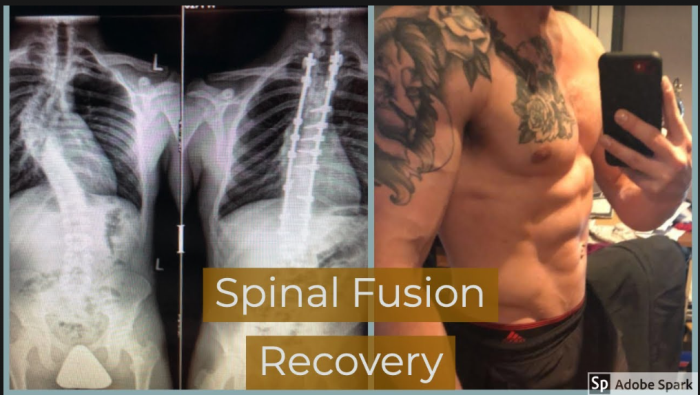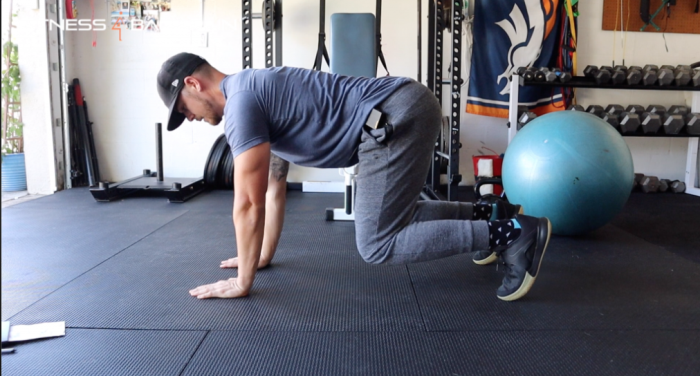After spinal fusion surgery, patients can expect some pain and discomfort, which gradually improves over time. The first few days involve hospital stays where doctors closely monitor your progress. It’s crucial to follow post-operative instructions, including using pain management techniques, wearing a brace if needed, and starting gentle activities as advised. Recovery takes several months, but with the right care, most people regain mobility.

Spinal Fusion Recovery Timeline: From Surgery to Full Mobility
The spinal fusion recovery timeline typically extends from six months to a year. The first few weeks focus on pain control and gradual movement. By the third month, patients often start physical therapy to improve strength. Around six months, significant recovery is achieved, though complete fusion and full mobility may take up to a year.
Immediate Post-Surgery Care: The First 24 Hours After Spinal Fusion
In the first 24 hours after spinal fusion, patients are monitored for complications such as infection or bleeding. Pain management, either through medication or epidurals, is essential. Patients are encouraged to move slightly, usually with assistance, to promote circulation. Close attention is given to incision care and early mobilization.
How Long Does It Take to Recover from Spinal Fusion Surgery?
Recovery after spinal fusion surgery generally takes three to six months, but full recovery can last up to a year. During this period, patients gradually regain strength and mobility, starting with gentle movements and progressing to physical therapy. Adhering to post-surgery guidelines ensures faster and more complete healing.

Stages of Healing: Week-by-Week Breakdown of Spinal Fusion Recovery
During the first week, focus is on managing pain and limited mobility. By the third week, patients can begin light activities. Spinal fusion recovery progresses significantly by the fourth or fifth week, allowing for physical therapy. By the third month, the fusion should be well-established, and you may resume daily activities with caution.
Common Post-Surgery Symptoms After Spinal Fusion
Typical post-spinal fusion symptoms include swelling, pain, and stiffness at the surgery site. Patients may also experience leg or arm pain due to nerve healing. Mild discomfort is normal, but persistent or severe pain should be addressed by your doctor to rule out complications.
Pain Management After Spinal Fusion: Tips for Comfort
Managing pain after spinal fusion is essential for recovery. Patients are often prescribed medications such as opioids or NSAIDs. Ice packs, rest, and gentle movement can also help. Physical therapy, starting at the right time, can gradually reduce pain while restoring function.
Physical Therapy After Spinal Fusion: When to Start and What to Expect
Physical therapy after spinal fusion typically starts six to eight weeks post-surgery. The goal is to strengthen the muscles supporting the spine, improve flexibility, and promote mobility. A customized plan ensures that exercises are done at a safe pace to avoid stressing the fused area.
Top 5 Exercises for Spinal Fusion Recovery: Boosting Strength and Mobility
For safe spinal fusion recovery, core-strengthening exercises like pelvic tilts, gentle leg lifts, and seated marching are ideal. Walking is also encouraged to improve endurance. Avoid high-impact activities, focusing on slow, controlled movements to rebuild muscle and enhance flexibility.

How Age and Overall Health Impact the Outcome of Spinal Fusion Surgery
The outcome of spinal fusion surgery is influenced by factors such as age, overall health, and lifestyle. Younger patients often experience faster recovery and better outcomes, while older adults with conditions like osteoporosis or diabetes may face increased risks. Maintaining good health and following pre- and post-surgical care recommendations can significantly improve recovery after spinal fusion.
Top Symptoms That Indicate You May Need Spinal Fusion Surgery - Key Warning Signs
Key symptoms that may indicate the need for spinal fusion surgery include chronic back pain, numbness, tingling in the legs, difficulty walking, and reduced mobility. If you experience worsening pain or loss of function despite physical therapy or medications, it may be time to consider surgical intervention to stabilize your spine and alleviate symptoms.
Gentle Movements: Safe Exercises in the Early Days of Spinal Fusion Recovery
Early spinal fusion recovery exercises should involve gentle movements like walking, standing stretches, and seated exercises. These movements promote circulation, prevent stiffness, and improve your mental outlook. It's vital to avoid twisting, bending, or lifting heavy objects during this phase.
Stretching and Strengthening: Key Exercises for Long-Term Recovery
In the later stages of spinal fusion recovery, focus on gentle stretching exercises like hamstring stretches and wall squats. Strengthening the abdominal and back muscles is crucial to support the fused spine and prevent future problems. A balanced approach to flexibility and strength is essential for long-term recovery.
When Can You Return to Normal Activities After Spinal Fusion?
Patients can generally return to normal activities after spinal fusion around the three- to six-month mark, depending on individual progress. Light activities like walking or desk work can resume within weeks, but strenuous activities such as lifting or sports should be avoided until fully cleared by your doctor.
Restoring Flexibility: How to Gradually Regain Movement Post-Spinal Fusion
Restoring flexibility after spinal fusion requires slow and deliberate stretching exercises. Gentle yoga or physiotherapist-guided stretches can help improve range of motion without stressing the spine. Gradually increasing activity levels can help you safely regain movement over time.
Do’s and Don’ts During Spinal Fusion Recovery: Protecting Your Spine
During spinal fusion recovery, it’s important to avoid bending, twisting, or lifting heavy objects. Follow doctor-recommended exercises, and rest when needed. Avoid prolonged sitting or standing, and always maintain proper posture. Do use your prescribed brace if recommended for additional support.
Sleeping After Spinal Fusion: Best Positions for Optimal Healing
Sleeping after spinal fusion requires careful positioning to prevent strain on the spine. The best positions include sleeping on your back with a pillow under the knees or on your side with a pillow between the legs. Avoid sleeping on your stomach as it can put stress on the fusion site.
Diet and Nutrition Tips for Faster Spinal Fusion Recovery
A healthy diet rich in protein, calcium, and vitamin D is essential for faster spinal fusion recovery. Protein helps rebuild tissues, while calcium and vitamin D promote bone healing. Including fruits, vegetables, and hydration also aids in overall healing and reduces inflammation.
Post-Surgery Fatigue: How to Cope with Tiredness After Spinal Fusion
It’s common to experience post-surgery fatigue after spinal fusion due to the body’s energy being focused on healing. Ensure you get plenty of rest, stay hydrated, and follow a balanced diet to boost energy levels. Gentle physical activity, once cleared by your doctor, can also help.
Scar Care After Spinal Fusion: Tips for Minimizing Scarring
For scar care after spinal fusion, it’s important to keep the incision site clean and dry. Use silicone gels or sheets to minimize scarring, and avoid sun exposure, which can darken scars. With proper care, most scars will fade significantly over time.
Driving After Spinal Fusion Surgery: When Is It Safe?
Most patients can resume driving after spinal fusion surgery once they are no longer on pain medications and can comfortably twist their body to look over their shoulder. This is usually around six weeks post-surgery. Always consult with your doctor before getting behind the wheel.
When to Return to Work After Spinal Fusion Surgery
Returning to work after spinal fusion surgery depends on the type of work. For desk jobs, patients can return within four to six weeks. For physically demanding jobs, recovery may take three months or longer. It’s essential to follow your doctor’s recommendations to avoid complications.
Factors That Can Affect Spinal Fusion Recovery
Several factors can affect spinal fusion recovery, including age, overall health, smoking, and the level of physical activity before surgery. Older patients or those with underlying health conditions may experience longer recovery times. Following a healthy lifestyle post-surgery can improve outcomes.
Best Spinal Fusion Surgery in India
The Best Spinal Fusion Surgery in India is characterized by advanced techniques, state-of-the-art technology, and experienced surgeons. Many patients choose India for its high success rates and the availability of minimally invasive procedures, which significantly reduce recovery times and hospital stays.
Spinal Fusion Surgery Cost in India
The Spinal Fusion Surgery Cost in India is significantly lower compared to Western countries, making it an attractive option for patients seeking affordable healthcare without compromising quality. The cost typically ranges from INR 1 lakh to INR 5 lakhs, depending on various factors such as hospital type, surgeon expertise, and individual patient needs.
Best Hospitals for Spinal Fusion Surgery in India
Some of the Best Hospitals for Spinal Fusion Surgery in India include renowned institutions like Apollo Hospitals, Fortis Healthcare, and AIIMS, which are equipped with modern facilities and skilled medical professionals. These hospitals have dedicated orthopedic departments specializing in spinal surgeries, ensuring patients receive top-notch care.
Best Doctors for Spinal Fusion Surgery in India
The Best Doctors for Spinal Fusion Surgery in India are highly qualified orthopedic surgeons with extensive experience in spinal procedures. Many of these specialists have trained internationally and are affiliated with leading hospitals, ensuring patients receive expert care tailored to their unique conditions.
Complications After Spinal Fusion: What to Watch For
While complications after spinal fusion surgery are rare, patients should be aware of symptoms such as fever, increased pain, redness or swelling around the incision, and numbness or tingling in the limbs. If any of these symptoms arise, it’s crucial to seek medical attention promptly.
Infection Risk After Spinal Fusion: How to Reduce Your Chances
The risk of infection after spinal fusion is minimized by proper post-operative care. This includes keeping the incision site clean and dry, following wound care instructions, and avoiding exposure to contaminated environments. Infections, if they occur, are typically treated with antibiotics.
Follow-Up Appointments After Spinal Fusion: Why They Are Important
Regular follow-up appointments after spinal fusion are crucial for monitoring the progress of bone fusion and ensuring proper healing. During these visits, your doctor will take X-rays, assess the fusion, and adjust your recovery plan as needed. Consistent follow-up helps prevent complications.
Sports and Physical Activities After Spinal Fusion: When to Resume
Light activities like walking can be resumed within a few weeks, but high-impact sports should be avoided for at least six months to a year after spinal fusion. Activities like swimming may be reintroduced around the three- to six-month mark. Always consult your doctor before resuming sports.
Post-Spinal Fusion Lifestyle: Adjustments for Long-Term Spine Health
Maintaining long-term spine health after spinal fusion involves regular exercise, maintaining a healthy weight, and avoiding heavy lifting. Practicing good posture and staying active are essential to support the spine and prevent future problems.
How to Avoid Future Spine Issues After Spinal Fusion Surgery
To prevent future spine issues after spinal fusion, focus on maintaining a strong core, using proper lifting techniques, and engaging in regular physical activity. Good posture and ergonomic adjustments to daily activities can also protect your spine from further injury.
Real Patient Experiences: Success Stories of Spinal Fusion Recovery
Success stories of spinal fusion recovery highlight the benefits of the procedure. Many patients report significant improvements in mobility and pain reduction. These personal experiences often provide practical advice and offer motivation for others undergoing recovery.
FAQs About the Spinal Fusion Recovery: Timeline, Exercises, Tips & Full Guide
How long does spinal fusion recovery take?
Recovery from spinal fusion surgery usually takes 3-6 months, but full recovery can last up to a year depending on individual health and the extent of the surgery.
What exercises are safe after spinal fusion?
Safe exercises include walking, gentle leg lifts, pelvic tilts, and seated stretching. Avoid high-impact or twisting movements during the early stages of recovery.
When can I return to work after spinal fusion?
For desk jobs, you can typically return to work in 4-6 weeks. For physical labor, it may take 3 months or longer depending on your recovery progress.
Will I need a brace after spinal fusion surgery?
Not all patients need a brace, but if recommended by your doctor, it helps support the spine during recovery and promotes proper alignment.
Can I drive after spinal fusion surgery?
You can resume driving after spinal fusion once you are off pain medications and can comfortably twist your body, typically around 6 weeks post-surgery.
How can I manage pain during spinal fusion recovery?
Pain is managed with medications, ice packs, gentle movement, and physical therapy. Gradually, pain will lessen as the body heals.
What are signs of complications after spinal fusion?
Watch for fever, increased pain, redness, or swelling at the incision site, as well as leg pain or numbness. If any occur, contact your doctor.
Is it normal to feel tired after spinal fusion?
Yes, fatigue is common after spinal fusion as your body focuses on healing. Proper rest, nutrition, and light physical activity can help.
How can I avoid future back problems after spinal fusion?
Prevent future issues by maintaining a healthy weight, practicing good posture, doing core-strengthening exercises, and avoiding heavy lifting.
What foods aid recovery after spinal fusion surgery?
A diet rich in protein, calcium, and vitamin D helps bone healing. Include fruits, vegetables, lean meats, and dairy products for optimal recovery.